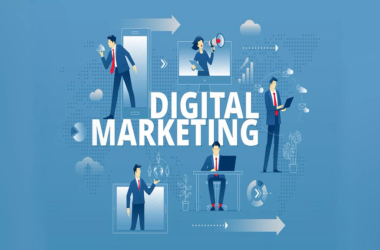In the modern media landscape, organizations face the constant challenge of producing high-quality content quickly and distributing it effectively across multiple channels. Managing articles, videos, podcasts, and social media posts can be overwhelming without the right system. That’s why selecting a dedicated cms for media companies is vital for streamlining operations and maintaining a competitive edge.
A media-focused CMS enables teams to manage content efficiently, collaborate seamlessly, and deliver a consistent brand experience. This article will explain the benefits of using a CMS designed for media companies, highlight essential features, and outline best practices for implementation.
The Need for a Media-Focused CMS
Unlike traditional websites, media companies deal with high volumes of diverse content on tight deadlines. A specialized CMS helps by providing:
- Centralized Content Management – Store and organize articles, videos, images, and podcasts in one platform.
- Automated Workflows – Simplify editorial approvals, scheduling, and notifications to prevent bottlenecks.
- Multi-Channel Distribution – Publish content across websites, mobile apps, newsletters, and social media simultaneously.
- Analytics and Reporting – Track audience engagement, performance metrics, and content effectiveness.
Using a CMS tailored for media companies allows teams to focus on content creation and audience engagement rather than managing technical or administrative tasks.
Key Features to Look For
When selecting a CMS, media companies should prioritize:
- Ease of Use
Editors and contributors should be able to create, edit, and publish content easily without technical expertise.
- Scalability
The CMS should accommodate growing audiences, increasing traffic, and expanding content libraries.
- Customizable Workflows
Automated and customizable workflows ensure tasks are completed efficiently while maintaining editorial standards.
- Integration Capabilities
The CMS should integrate with analytics, marketing automation, social media tools, and other essential systems.
- Security and Compliance
Robust security features protect content and ensure compliance with data privacy regulations.
Benefits of Implementing a Media-Focused CMS
A specialized CMS provides significant advantages, including:
- Efficiency – Streamlined workflows reduce repetitive tasks and speed up publishing.
- Collaboration – Teams can work together in real time, regardless of location.
- Consistency – Templates and style guides ensure a uniform look and feel across all content.
- Faster Publishing – Schedule and distribute content to multiple channels instantly.
- Data-Driven Decisions – Analytics insights help refine editorial strategy and improve audience engagement.
With these benefits, media companies can maintain high-quality output while reducing errors and operational delays.
Popular CMS Options for Media Companies
Several CMS platforms are specifically designed for media organizations, offering advanced publishing workflows, multi-channel distribution, and analytics integration. Selecting the right platform ensures efficient operations, scalability, and long-term success.
Best Practices for CMS Implementation
To maximize the benefits of a CMS, media companies should follow these steps:
- Evaluate Your Needs – Consider workflow, content volume, and growth projections.
- Choose the Right Platform – Compare features, pricing, and scalability.
- Train Your Team – Ensure staff can use the CMS effectively.
- Plan for Migration – Carefully transfer existing content to avoid data loss.
- Monitor and Optimize – Use analytics and feedback to continually improve workflows and content strategy.
Proper implementation ensures smooth adoption and maximizes long-term value.
Final Thoughts
A dedicated cms for media companies is essential for modern media organizations seeking efficiency, scalability, and consistent content delivery. By centralizing content, automating workflows, and providing actionable insights, a media-focused CMS empowers teams to create high-quality content that engages audiences across multiple platforms.






